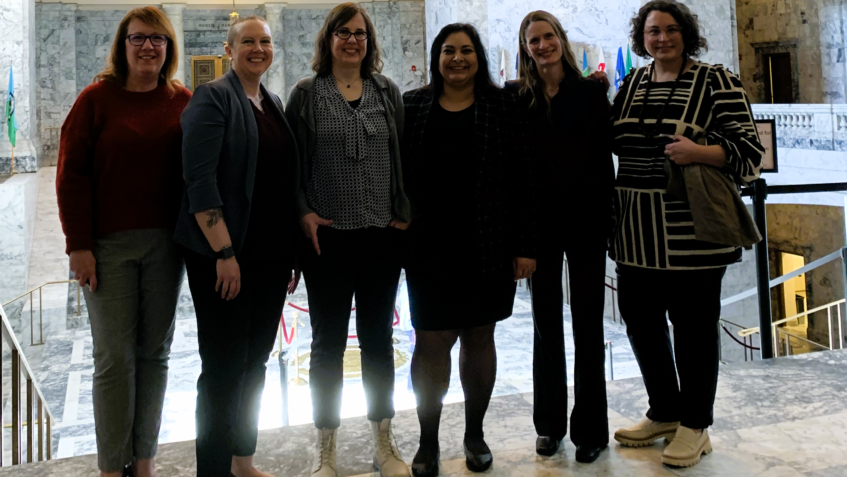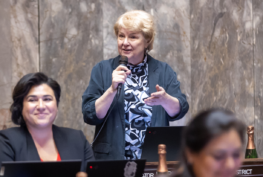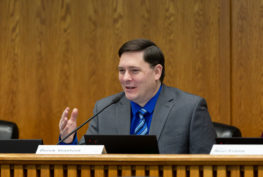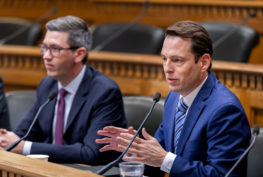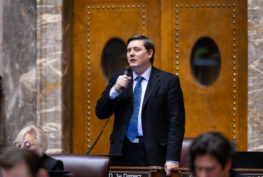OLYMPIA — Two omnibus bills to improve the response to survivors of sexual assault and child trafficking in Washington state’s legal system were signed into law Tuesday.
“This legislation rewrites our state’s laws to provide a truly victim-centered, trauma-informed response to survivors of sexual assault and child trafficking,” said Sen. Manka Dhingra (D-Redmond), prime sponsor of both bills. “Too often, the victims of gender-based violence are forgotten by our society. These bills increase support to help survivors get their own lives back on track as well as ensure justice is done.”
SB 5937 streamlines eligibility for crime victim benefits, covers some of victims’ costs for forensic examinations, expands protections to more victims, improves state and local teams to respond to sexual assault, and ensures that children ages 13 and up can consent to forensic sexual examinations and examinations for sexually transmitted infections, among other changes.
The legislation draws on the recommendations of the Sexual Assault Forensic Examination (SAFE) Best Practices Advisory Group as well as the experiences of survivors and the knowledge of experts in the field.
SB 6006 addresses the neglected problem of child trafficking. Every year, 500 to 700 minors are forced into sex trafficking in Washington state. But over the past decade, fewer than 100 people have been prosecuted in Oregon and Washington for sex trafficking crimes.
Though the Legislature has made significant progress in recent years to increase support for survivors, Washington state received a C rating under new grading criteria used by Shared Hope International, the leading nonprofit working to eradicate sex trafficking.
SB 6006 implements Shared Hope’s recommendations to improve how the state identifies and responds to victims, provides victims with continued care, and enables victims to seek civil remedies for the wrongs done to them. It also makes Washington state law consistent with the federal Justice for Victims Trafficking Act so the state can continue to receive federal funding for anti-trafficking work.
“Children who are trafficked and sexually abused should not be criminalized simply because their abuse is paid for,” Dhingra said. “They are victims, not criminals.”
Currently, survivors of sex trafficking do not have the same rights and access to the services and support that survivors of childhood sexual assault do, Dhingra said. This bill would change that.
An amendment added in the House by Rep. Tina Orwall (D-Des Moines) expanded the scope of the legislation. It now modifies current law to make prosecution more effective and reestablishes the Commercially Sexually Exploited Children Statewide Coordinating Committee to oversee a unified statewide strategy.
“Current anti-trafficking law is failing Washington,” Orwall said. “It’s hard to use, and prosecutions are rare. By strengthening the law, we provide the legal system tools to fight trafficking and support victims.”
SB 5937 takes effect July 1, 2024, and SB 6006 July 1, 2025.

